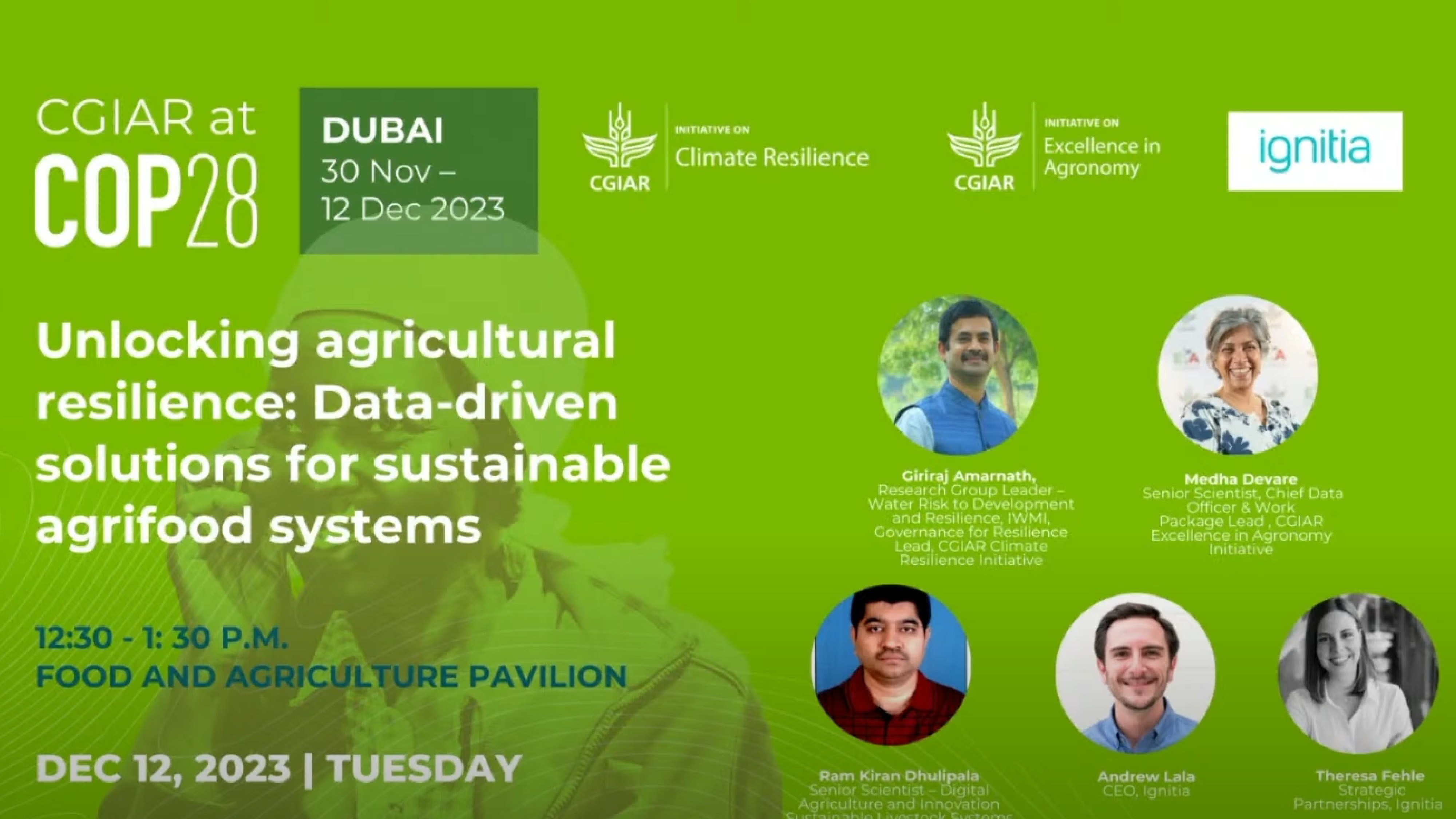
Unlocking agricultural resilience: Data-driven solutions for sustainable agrifood systems – 12 Dec
Core message
Rising costs show the impact of natural disasters is increasing due to climate change. Climate-related challenges could be aided by data-driven solution. This session discusses the critical role of data in informing decision-making processes at various levels.
Climate variability and unpredictability means sustainable agrifood systems must be able to take proactive and anticipatory measures. This collaborative session brings together key initiatives in the field, sharing a common goal of enhancing climate resilience and leveraging data-driven solutions for agrifood systems. Accessibility of data systems is essential for informed decision-making and empowering agriculture, disaster risk reduction and creating resilient market systems.

Key takeaways
- Giriraj Amarnath: We need multi-institutional coordination, digital governance, and the institutionalization of data-driven frameworks. Examples of operationalizing these frameworks at the community level, including the use of cash vouchers, locally-led adaptations, and nature-based solutions, underscore the tangible impact of data on preventing and mitigating climate shocks.
- Medha Devare: AI applications need reliable data else it’s a case of ‘garbage in, garbage out’. Public and private sector partners need to collaborate to integrate site-specific recommendations into existing agricultural systems.
- Ram Kiran Dhulipa: AICCRA is building national-scale agricultural data hubs in six countries. They aggregate relevant datasets with the intention of providing actionable advice to farmers. Such datasets can include climate and weather, crop health, livestock diseases, and more. The hubs allow agronomists to analyze data contextually, minimizes the transaction costs associated with accessing and comprehending diverse datasets, and streamline access to both global and ground-level data.
- Therese Fehle: Our company Ignitia shows that accurate, localized and high-resolution forecasting is possible even in metrologically challenging regions, such as west Africa, using AI and machine-learning. This forecasting tool can be made accessible to farmers through partnerships with mobile network operators. Ignitia has reached millions of farmers to assist them in decisions on planting, fertilization, and other critical activities. Our model is scalable and has potential to collaborate with partners on various initiatives including early warning systems, regenerative agriculture, and climate risk scoring.
- Andrew Lala: We should leverage expertise from both public and private sources, and build on a foundation of sound and precise science. We should advocate for the development of a vibrant ecosystem of solution providers, emphasizing competition and responsiveness to farmers' needs over top-down decision-making. This will create conditions for solutions to be adopted at scale.
Future actions
Successful partnerships in agriculture require collaboration with both institutions and farmers. It's critical that we focus on the cost of quality data, and the need for transparency in data accuracy reporting. Smallholder farmers are not just interested in climate services, but also the 'last-mile connection', including pricing for products and distribution. Data-driven solutions are essential to address market linkages, working with traders, and collaborating with export companies.